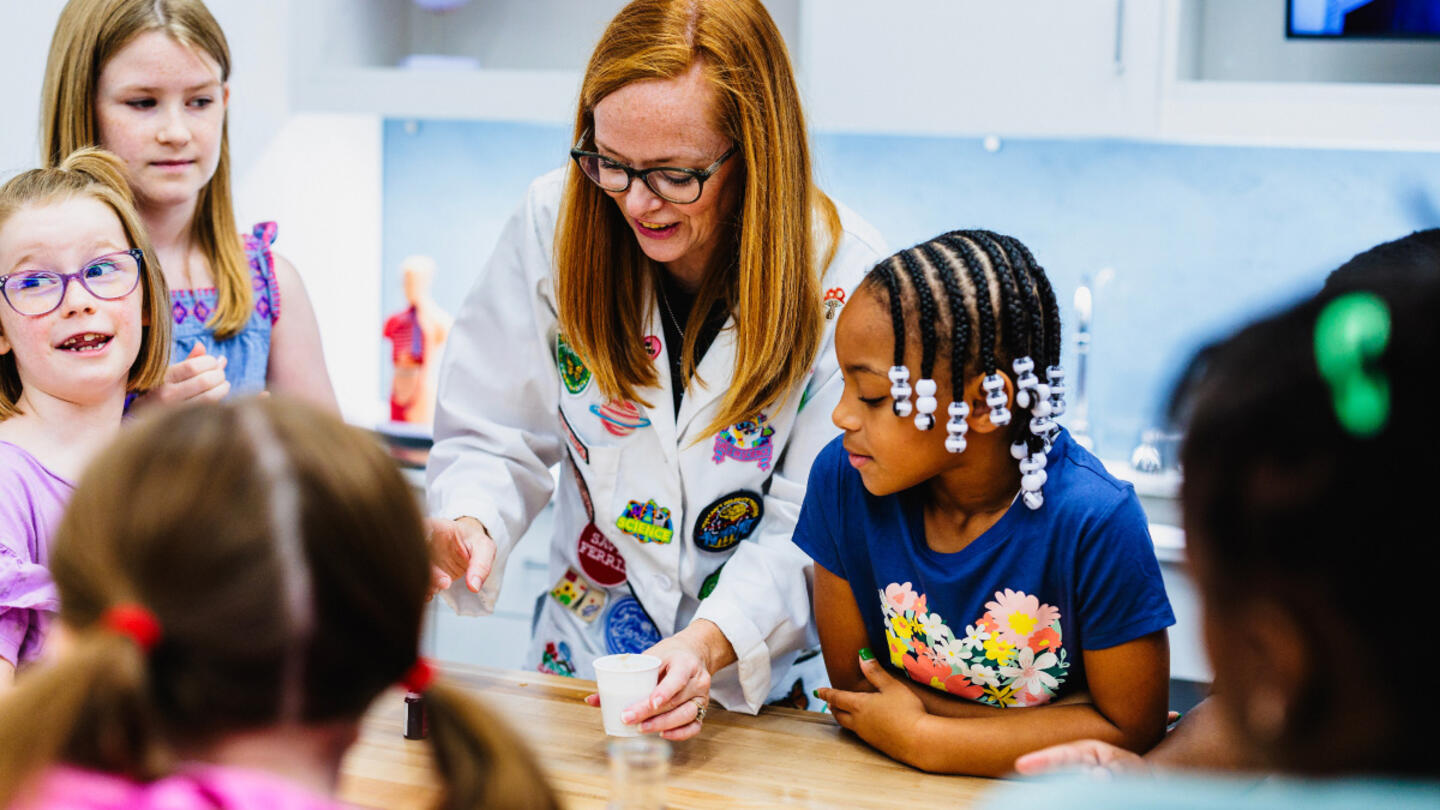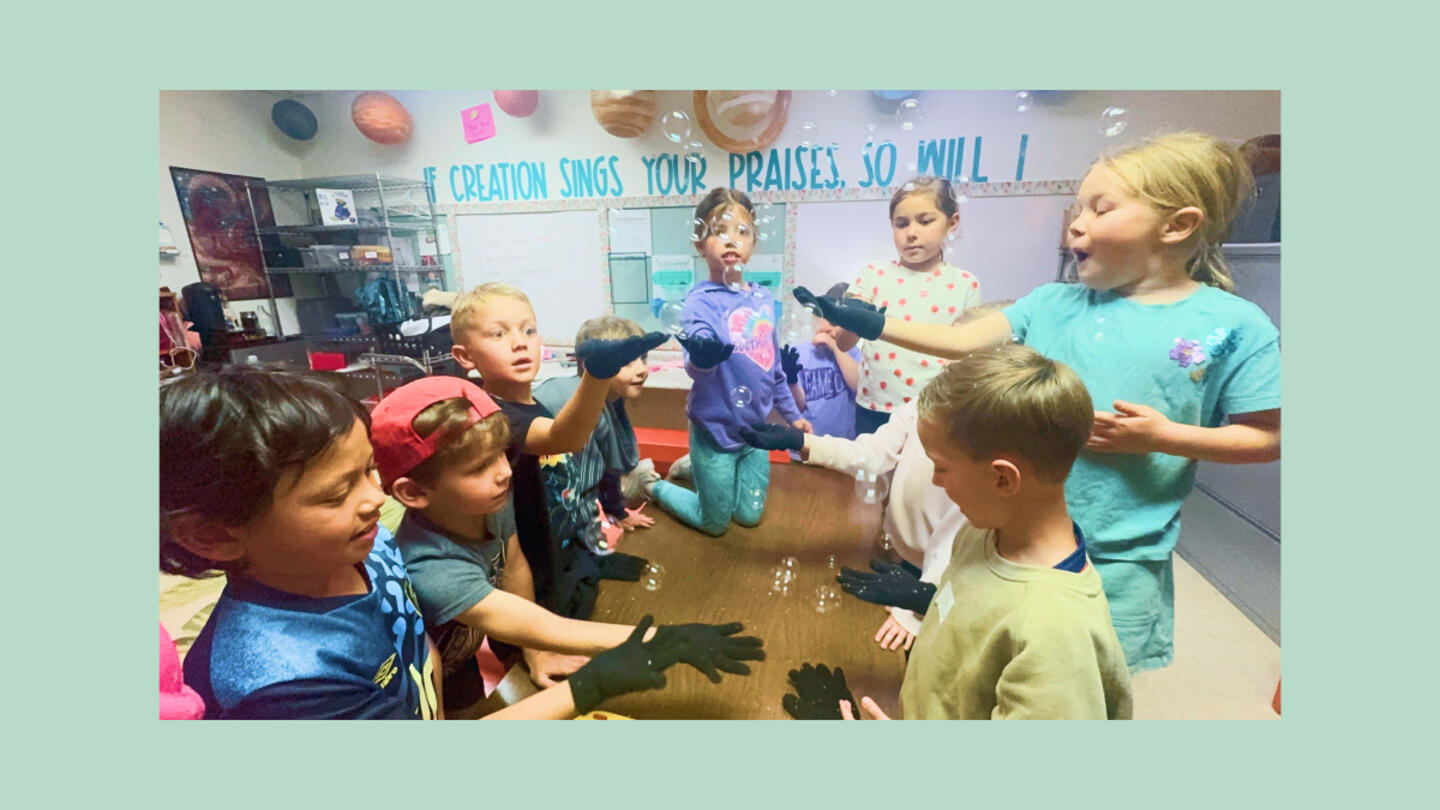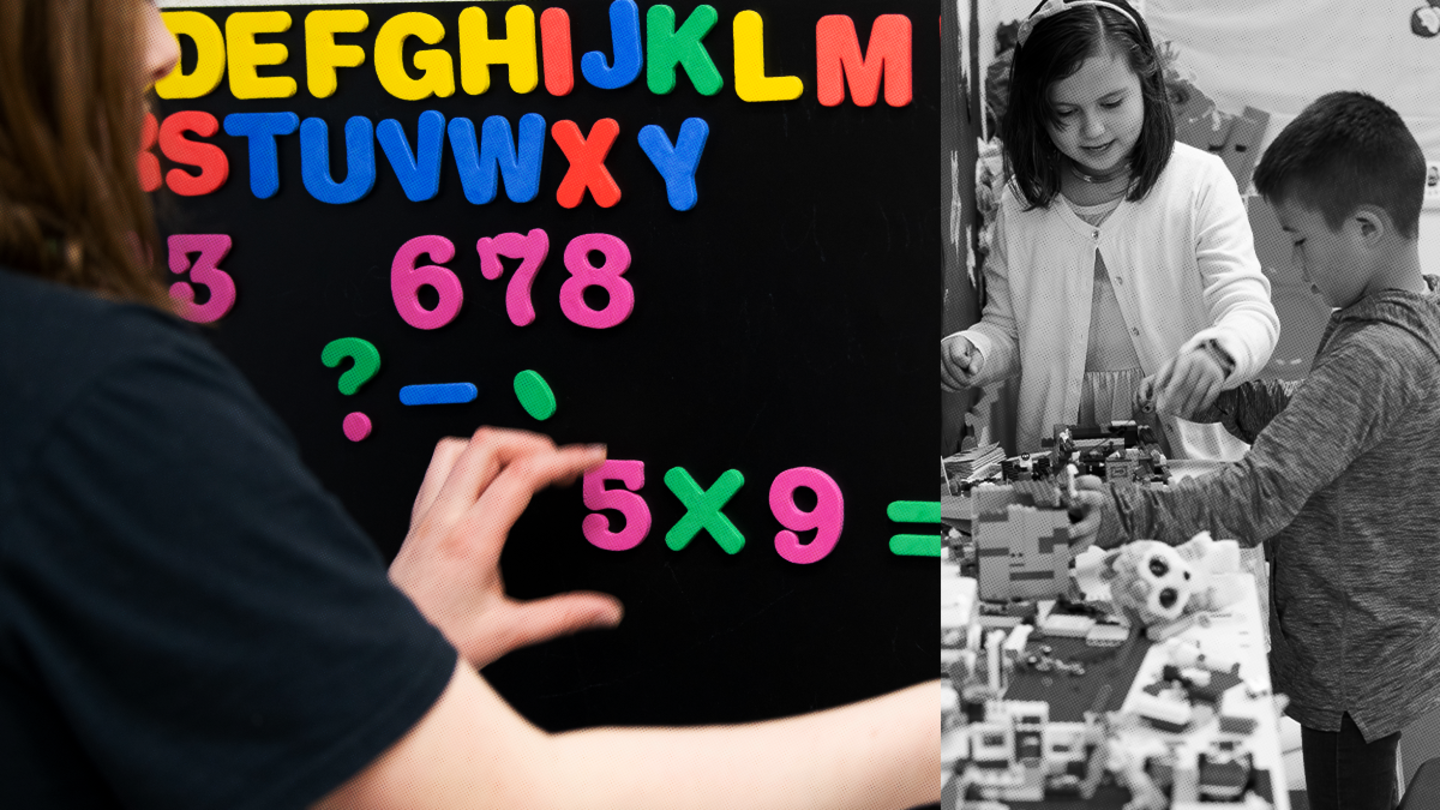Certain truths about learning are widely accepted and implemented in education settings around the globe. Schools are increasingly designing classrooms and experiences based on facts such as:
- Students learn better when they face the challenge of solving a problem themselves rather than being told how to solve it.
- Children will struggle to stay focused and engaged in learning when they are worried about their physical or emotional safety.
- Students have differing educational needs, and one size doesn’t fit all.
“These facts are backed by decades of rigorous research from scholars who explored the topic in various settings, for quantitative and qualitative outcomes, in longitudinal studies, and with learners of all ages,” said Patrick Wolf, distinguished professor of education policy at the University of Arkansas College of Education and Health Professions. “They’re also proof points that academic research is essential to ensuring learning environments increasingly support students’ abilities to discover, develop, and deploy their unique gifts and talents.”
An emerging group of researchers and scholars are dedicating their work to producing insightful data about alternative education environments. This group is moving away from the one-size-fits-all mindset that persists in education research. Instead, they’re challenging themselves and other researchers to approach their scholarship with curiosity, creativity, and openness to discover truths about learning and education beyond what we know to be possible.
The rise of alternative learning environments — like microschools, hybrid homeschools, and student-led schools — has expanded what is possible for quality schooling. These new learning environments can also broaden our understanding of the learning process. We could discover new facts about learning that, decades into the future, will be widely accepted and implemented in education settings around the globe.
Using collaboration to produce better research
Interactions between practitioners, researchers, and policymakers are essential to developing research that asks the right questions to produce relevant results and applies to K-12 learning environments.
“Practitioners only observe a small sample of what [is working for students],” explained Wolf. “Similarly, researchers are only getting responses from a small portion of respondents and only to the questions they’re asking.”
Education conferences are valuable opportunities for scholars, educators, and policymakers to connect about emerging research, learning environments, and policy ideas. However, researchers, scholars, and practitioners of alternative learning environments have found that many traditional conferences weren’t supporting their work goals. Though they attract tens of thousands of attendees, most “mainstream” education conferences offer limited discussions on school choice and alternative learning options. Additionally, many conferences are narrowly focused, attracting academics or policymakers but not both, limiting the exploration of alternative learning models across disciplines.
That’s why the International School Choice and Reform Conference, founded in 2010 by Wolf alongside Nina Buchanan and her husband, the late Robert Fox from the University of Hawaii Hilo, exists. The annual gathering, drawing over 200 attendees from various countries, fosters collaboration among scholars, practitioners, and policymakers, promoting research and innovation in school choice and alternative learning environments. The more intimate ambiance has produced collaboration and innovation that expands beyond the few days spent together — it’s helping to build a network for scholars looking to explore school choice and learning in alternative environments.
Consider the experience of Christy Batts, a doctoral student at North Carolina State University’s College of Education with a concentration in educational evaluation and policy analysis. When starting her doctoral work, she did not find a cohort of other academics interested in her chosen specialization of homeschooling.
“I was feeling a little lost in the conversation,” Batts explained. She found herself asking questions like: “Is anyone else interested in what I’m talking about? Am I totally off with some of the questions I’m curious about?”
At the 2023 Fort Lauderdale ISCRC meeting, Batts forged connections with scholars she had studied and practitioners who provided valuable real-world insights for her research, enhancing her current studies and opening doors for post-graduation opportunities.
“The connections I made at ISCRC broadened the world of possibilities,” Batts shared. “Especially in homeschooling, there is a very narrow selection of literature that is talked about. I have to see outside of that narrow literature to other advocacy, media, and practitioners because the literature isn’t asking all the questions. I want my research to be utilized. To be utilized, it has to be relevant, and if I’m not talking to someone who’s doing it right now, it’s not going to be relevant or utilized.”
For Anna Egalite, associate professor and Batts’ adviser at North Carolina State University, the relevancy and utility of research that has surfaced at the conference has been integrated directly into her graduate classes. Egalite contributed to an academic book of essays resulting from collaboration among ISCRC attendees and edited by co-founders Buchanan and Fox. She now presents that book, “The Wiley Handbook of School Choice,” to her graduate students — encouraging the next generation of scholars to include the study of learning in alternative education environments and to look beyond what we know to be possible.
“Not everybody who participates in ISCRC is a choice advocate, and that’s our strength,” Egalite said. “Some researchers might be supportive, and others might be critical of alternative learning environments — the overarching goal is to come together around high-quality research, learn from each other, and keep thinking about the unanswered questions about school and learning.”
Sign up for Stand Together's K-12 newsletter and get stories, ideas, and advice from changemakers who are transforming education across the country.
Data as a tool to advance progress
Strengthening the body of research about learning isn’t limited to asking new questions and creating new studies. Straightforward, unbiased data on new and emerging education models can inform educators, innovators, and policymakers about trends and financing options — helpful information to provide direction to their respective work.
Consider, for example, homeschooling — it’s been growing in popularity lately, but until recently, there was no simple way to gather available data about it. How many students are choosing to homeschool? Where is it most popular? And what regulations encourage or discourage it? The answers to these questions can lead researchers and policymakers to understand and articulate why families are choosing it or what resources offer the most benefit and flexibility for homeschooling families.
So Angela Watson, assistant professor at the Johns Hopkins School of Education and a senior research fellow at the Institute for Education Policy, started the Homeschool Hub and Research Lab. Housed at the Johns Hopkins Institute for Education Policy and funded in part by EdChoice, the Homeschool Hub aggregates all federal and state data about homeschooling, as well as some academic institution data.
Previously, researchers looking for information on homeschooling participation, regulation, and policy would have to visit each state’s database — an effort that would take days. Now, homeschool participation data can be collected with just a few clicks of a button from this centralized hub. The associated research lab plans to take homeschool research to the next level, elevating and expanding the conversation around homeschool policy.
“As homeschooling continues to expand and evolve, we need a better understanding of this growing and diversifying education sector,” explained Watson. “We need policy based on facts, not historical stereotypes. My hope is that the Homeschool Hub will help fill these needs.”
Hope is already becoming a reality.
“We get several requests a week for comment, data, and policy advice from across the country,” said Watson. “Clearly, there was a dearth of information on the topic, and people are interested.”
Since the hub has only been public since the beginning of 2024, time will tell how access to this data and research will transform homeschooling in America.
Learning from founders
While we may not have long-term research on new learning models for educators to draw upon, we can glean valuable insights from founders' experiences right now.
That’s why the VELA Founder Network (formerly called VELA Education Fund) created a new research hub that hosts original research alongside case studies highlighting founders' experiences of new and alternative learning models. With nearly 2,500 founders in VELA's network, the research and case studies hosted there explore how founders innovate on time, space, and labor to build sustainable businesses.
“The founders in the VELA Founder Network are constantly innovating to provide low-cost alternatives to conventional schooling that respond to the unique values, priorities, and education practices desired by families,” said Meredith Olson, president and CEO of VELA. “Our research not only highlights these new and creative approaches but also promotes knowledge-sharing between founders, ultimately making it easier for education entrepreneurs and prospective founders to launch and grow sustainable businesses that revolutionize education.”
“What’s happening with VELA behind the scenes that a lot of people don’t realize is the members of the VELA network are supporting each other,” , founder of Acton Academy in Fort Lauderdale. “They’re sharing what they’re learning.”
Taking the time to share and study the impact of new learning environments is essential for quality transformation and is a powerful antidote for the strong reactions change can elicit. By examining the successes and pitfalls of new and alternative learning environments, these education innovators and scholars are working to assuage fears that change will negatively impact learning and affirm curiosity about what might be possible.
As the adage goes, “We can’t know what we don’t know,” but hopefully, in the not-too-distant future, we’ll know a lot more about learning thanks to the innovative research and experimentation of new and alternative learning environments.
***
International School Choice and Reform Conference, Homeschool Hub and Research Lab, EdChoice, and VELA are supported by Stand Together Trust, which provides funding and strategic capabilities to innovators, scholars, and social entrepreneurs to develop new and better ways to tackle America’s biggest problems.
Learn more about Stand Together's education efforts and explore ways you can partner with us.

‘We want these boys to know that regardless of where they come from, they still can be excellent.’

This colearning space has the potential to bridge the divide between public and private education.

New Johns Hopkins data shows homeschooling’s recent surge has transformed the education landscape.
Step 1: Find the best learning environment for your child. Step 2? Figure out how to pay for it.
